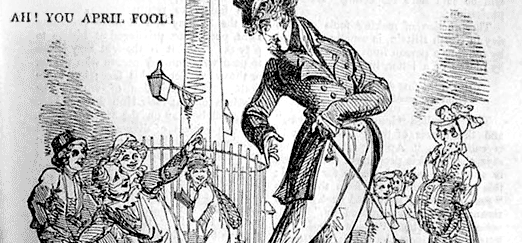Some students cheat in their exams, and teachers either know it or suspect it. Metacafé has a collection of school cheat videos that will make your life easier (or more complicated?). The most shocking, for me, was the Coca-cola cheat. Enjoy:
Category Archives: 3r ESO
Is ‘ho’ a dangerous word in English?
What do you think about this word? Is it one of the forbidden words in English like the f-word or the c-word?
Natterjack eggs
One of the commonest toads in Catalonia is the natterjack. However, this year’s lack of abundant rain will make it difficult for this animal to reproduce. At home, my small colony of nattejarks have laid their eggs. This is a picture of a string of eggs laid on the 24th March. At that time, they were five days old and you can see a small layer of algae covering them.
Some four days ago, the little embryos left the eggs and now they’re fully grown miniature tadpoles. I will keep posting pictures of them to see how they grow. If you want to know a bit more about this interesting amphibian, visit the web site for the Societat Catalana d’ Herpetologia.
The competition is drawing to its end
In the eventual case that more than one of you had chosen the same number of corrects verbs, I will assign a number to each of the winners and then select a random winner.
In order to make it as impartial as possible, I will use a random-number web site to choose the winner. If you want to know how it works, you can visit it yourselves.
April the fool’s
The prize for the 3 most common verbs in the English language
12 most frequent verbs in English
According to the Longman Grammar of Spoken and Written English (1999) the list of the top 10 verbs of the English language is:
- Number 10.Want (voler). Just a normal, regular verb.
- Number 9.Take (agafar). The first irregular verb in the list!
- Number 8. Come (venir). Irregular!
- Number 7. Make (fer). Irregular too!
- Number 6. See (veure). Erm… irregular again? Yes!!
- Number 5. Think (pensar). Irregular, yes!
- Number 4. Know (conèixer) Yet another irregular verb.
- Number 3. …
- Number 2. …
- Number 1. …
Can you guess these three verbs? Send me your comments and see if you win this little competition. Oh, one clue: it’s not ‘to be’ nor ‘to have’ and they are all irregular verbs!

Revise for your history exams
 The BBC’s ‘bitesize’ offers revision for most subjects at different stages. Today, I would like to highlight their history articles.
The BBC’s ‘bitesize’ offers revision for most subjects at different stages. Today, I would like to highlight their history articles.
Check them out, listen to them and read the scripts:
- BBC Bitesize, history lessons.
- Example: Causes of the First World War (realplayer, transcript)
- Example: The end of the Cold War (realplayer, transcript)
Past simple or present perfect?
Past simple or present perfect? That’s a difficult situation in some sentences. In the introduction to unit 7 I gave you a list of words that can immdediately tell you if you need a past simple or a present perfect. They are the following:
| PAST SIMPLE |
PRESENT PERFECT |
| AGO (… 5 years ago = fa cinc anys) | FOR (… for two months = durant dues setmanes) |
| IN + time reference (… in August, in 2004, in winter) | SINCE (… since 2005 = des del 2005) |
| YESTERDAY (ahir) | YET (encara no) |
| LAST (… last week = la setmana passada) | JUST (tot just, acabar de) |
| ALREADY (ja) | |
| EVER? (algun cop?) | |
| 0 (cap paraula) |
However, as you learn more and more English, you might find examples of sentences that contradict this rule. Don’t worry. Languages are complex and full of exceptions.
Practice what you know with these activities:
- Present perfect or past simple 1 (there are some exceptions, don’t worry)
- 52 sentences!! (some exceptions, but the majority are easy to answer).




